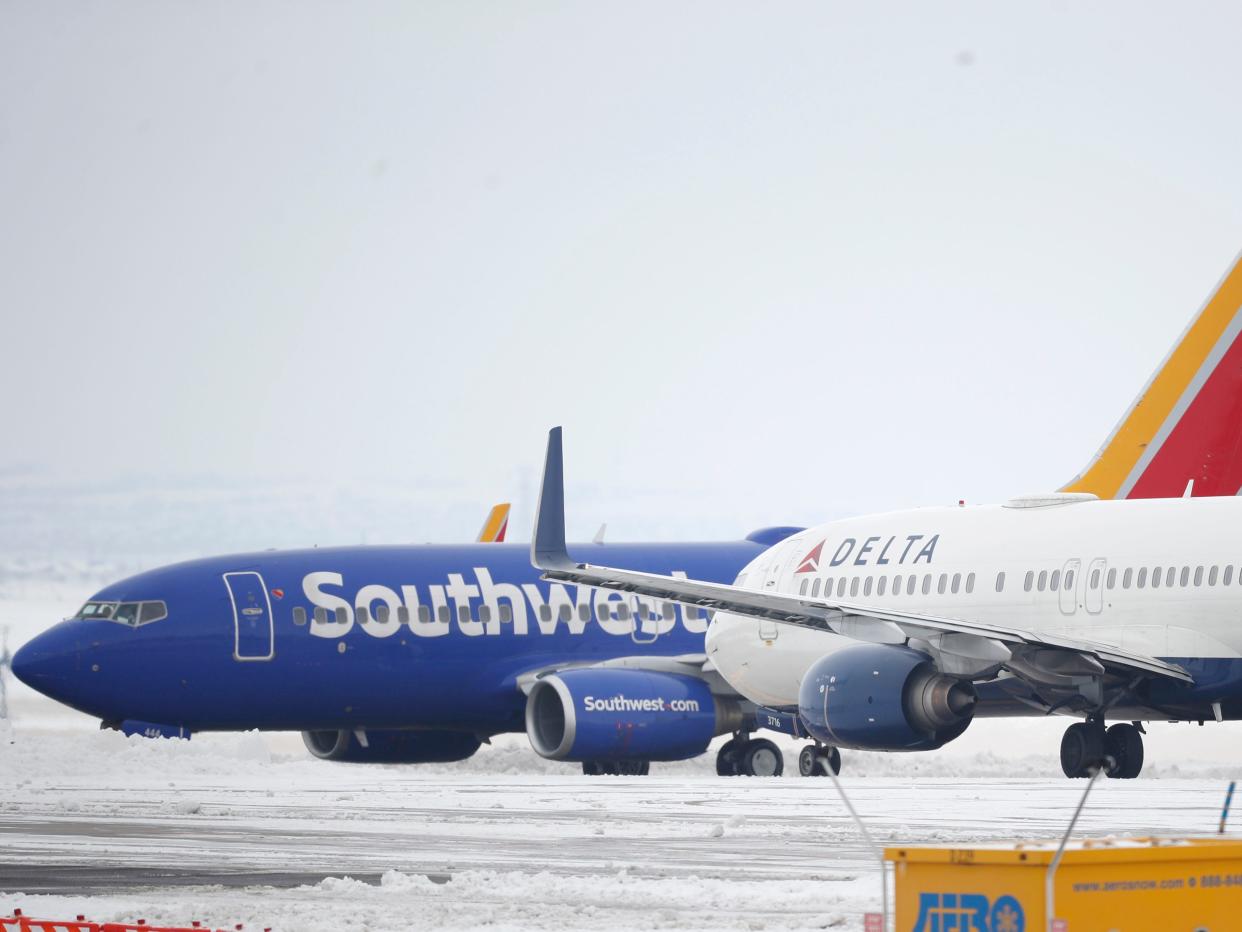The coronavirus pandemic could force airlines to turn to unprecedented cost-saving measures

Associated Press
Airlines are looking into consolidating some routes and working together, according to a new CNBC report, the latest effort to cut costs as the coronavirus wreaks havoc on the airline industry.
Under the terms of the federal bailout, airlines must continue service as much as possible between cities they currently connect.
However, with multiple airlines flying some routes, and planes routinely just 5-15% full, airline executives are looking into whether the US Department of Transportation will allow them to combine those flights until the crisis ends.
Airlines are weighing the feasibility of consolidating service and coordinating routing in an effort to stem losses caused by the coronavirus pandemic, according to a CNBC report.
Leaders at major US airlines are in talks about whether to push the Transportation Department to allow the move, which would require the department to allow temporary modifications to current service routes.
Permission from federal transportation officials would be necessary because the coronavirus bailout package, which was signed into law last week, requires airlines to continue service as much as possible between cities they currently connect.
However, planes are flying virtually empty, a significant expense for airlines — despite the bailout — with some routes served by multiple carriers. That means that multiple planes could be flying between the same city pairs, each carrying just a few passengers.
Passenger numbers have plummeted as business travel has practically ended, vacations have been postponed, and parts of the country have been placed on lockdown. Airlines are routinely seeing just 5-10% of seats filled. Although airlines have cut some domestic capacity, requirements to maintain service have kept more flights in the air.
On Monday, the Transportation Security Administration (TSA) screened just 154,080 passengers nationwide, a spokesperson said, the lowest number in at least a decade. The TSA screened more than 2.3 million people on the same date in 2019.
According to the CNBC report, executives from multiple airlines who spoke with the outlet said that the idea had not yet been presented to the Department of Transportation.
In practice, a consolidation would look similar to a normal code share, where one airline sells tickets for a flight operated by another. Each participating airline could sell tickets, and then share the costs of operating the flight with one plane.
A temporary consolidation of flights would harken back to the days when the US government regulated airlines, coordinating which routes a carrier would fly, as well as the fares they could charge. The practice ended with the 1978 Airline Deregulation Act.
Read the original article on Business Insider

